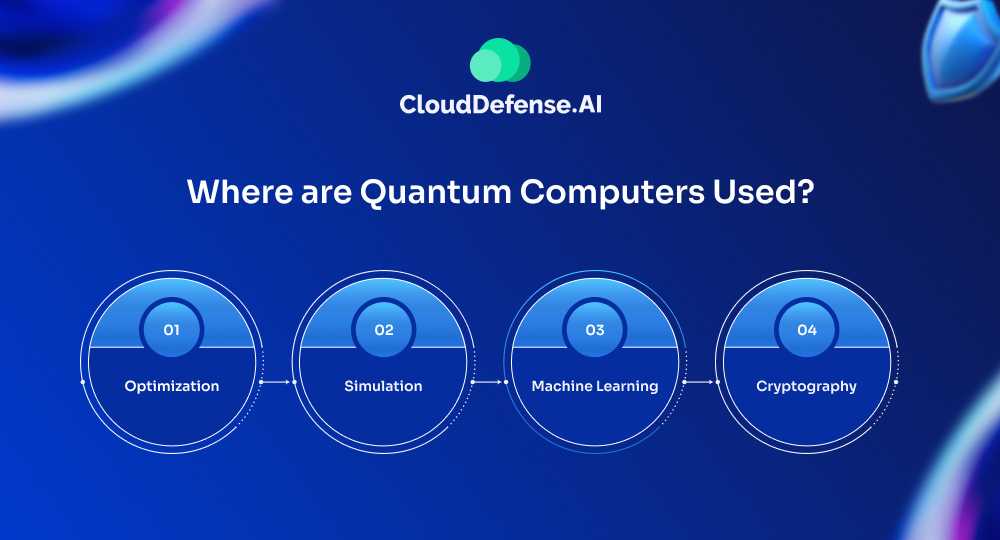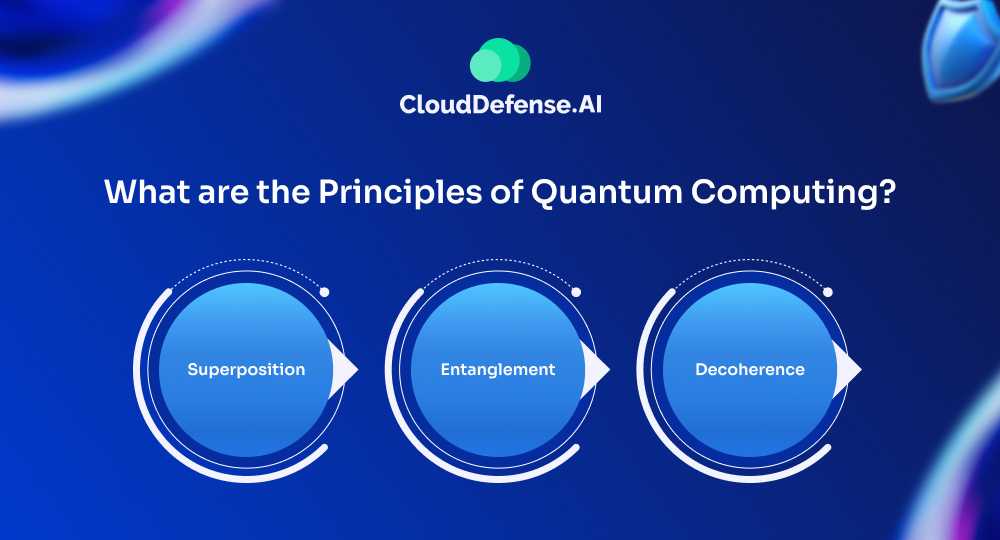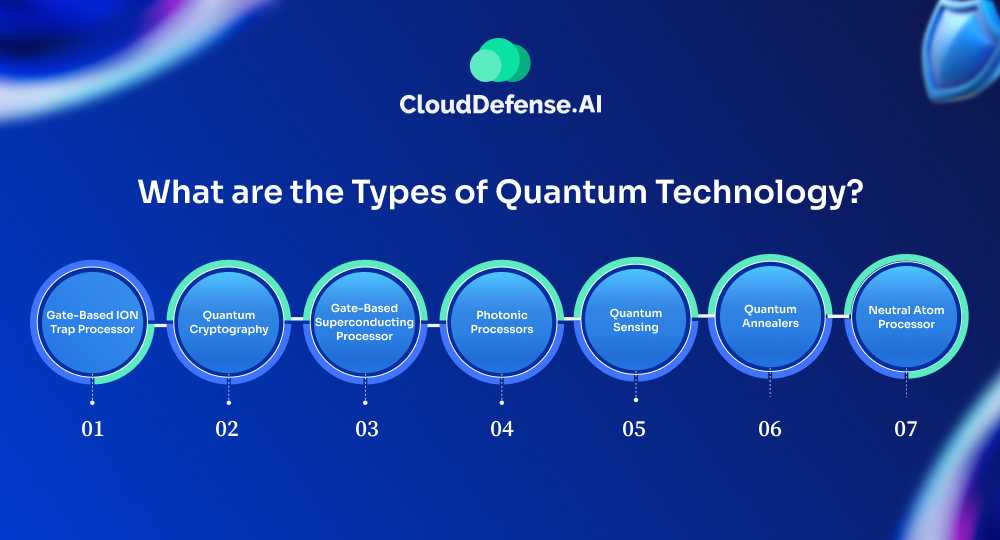What is Quantum Computing?
Quantum computing is a specialized domain in modern computer science encompassing computers, algorithms, mathematics, and physics that leverages quantum mechanics to perform complex tasks that normal computers can’t. Quantum computing is mainly focused on enhancing the development of quantum theory-based computers.
This field usually includes application development and hardware research. Most importantly, it takes advantage of quantum effects like superposition and quantum interference to solve complex problems quicker than others. In specific applications, quantum computers can also make use of machine learning, optimization, and simulation techniques to enhance performance.
Many organizations are making progress in the development of quantum computers that would cause a massive increase in performance in certain use cases. Quantum computing is expected to bring a massive improvement in various sectors which include pharmaceuticals, manufacturing, finance, and cybersecurity.
Even though this field is emerging rapidly in the industry, experts believe that it will take more years for quantum computers to offer practical benefits.
How Do Quantum Computers Work?
Quantum computers are based on quantum mechanics that work by leveraging qubits or CUE-bits- 1s, 0s, and superposition of 1 and 0 simultaneously. The state of different qubits can sometimes be quantum mechanically linked to each other which leads to entitlement. It makes use of particles like photons or electrons that either achieve charge or polarization due to which it acts as a 0, 1, or both O and 1.
Thus entanglement and superposition are primary factors that enable quantum computers to achieve capabilities that can’t be achieved by traditional computers. Superposition signifies the process of putting the quantum information held by a qubit into a state where all configurations are applicable.
Entanglement on the other hand indicates a specific qubit which is directly changing another. Usually, traditional computers work using binary bits but quantum computers move a few steps further by using bits that can be present in different states at the same time.
Qubits which are also known as quantum bits are quite similar to bits of classic computers but they process information differently from bits. The working is so fast that in 2019, it solved a problem within 200 seconds that would have taken 10,000 years for standard computers.
Why Do We Need Quantum Computers?
Quantum computers are intended to make problems easier and faster to solve for scientists and engineers. The need for it arises as there are problems that classical computers can’t solve or would take a long time to decode.
Even though classical computers have evolved significantly and they involve a huge number of CPU and GPU cores to perform complex calculations, there are still significant limitations in solving certain problems. Moreover, supercomputers are based on modern transistor technology which is another downside.
Complex problems involve a lot of variables and factors, and they interact with each other in a unique way, leading to higher complexity. For example, it becomes difficult for modern computers to detect subtle malicious patterns in a financial transaction or unique behavior that leads to security breaches.
There are numerous complex events that scientists or engineers can’t solve even with the help of classical or supercomputers. This is the reason, the world needs quantum computers as a lot of aspects in modern times run on quantum physics. By leveraging quantum bits, it can easily solve many situations that are beyond the understanding of standard processes.
Importantly, the increasing requirement for processing power to perform lengthy tasks is making it problematic for organizations to accommodate higher-degree computing power in a limited space and transistor. This is where quantum computer computers solve the problems and it is estimated to be 158 times faster than modern supercomputers.
Where are Quantum Computers Used?

Quantum computers have revolutionized the modern industry and many organizations from various industries are putting it to good use. Here are certain areas in industries where quantum computers are used:
Optimization
Quantum computers are nowadays widely used to improve supply chain optimization in various industries. Organizations are introducing quantum computing in the manufacturing process to lower manufacturing costs and lower cycle time by optimizing elements in complex processes. Quantum computers are widely preferred for optimizing loan portfolios so banking institutes can use their capital in a better fashion and reduce interest rates.
Simulation
Simulation is another area where quantum computers are widely used as it helps organizations with the computational power needed to simulate systems with high accuracy. It is geared with immense computation power that can help many scientists to do complex chemical simulations that modern supercomputers can’t.
It is so powerful that it can solve most complex computational problems in chemistry with ease. Well renowned Pasqal utilizes QUBEC which is a computational software to carry out various chemistry simulations. QUBEC automates most of the processes to run computational tasks like provisioning of computing infrastructure and conducting error mitigation.
Machine Learning
Quantum computing plays a major role in the machine learning process by helping to improve the processing of high-dimension and complex data sets. Quantum computing involves studies of the physical limitations of data processes and making improvements. Thus it is able to help the ML process in gaining more proficiency while handling a vast set of data.
Cryptography
Quantum cryptography has become a new domain in the industry and it is helping many to secure communication systems against advanced cyber threats. It leverages quantum mechanics to enhance the cryptography process. Quantum key distribution is a well-known tool that offers quantum cryptography.
Besides these common uses, quantum computers are often used by organizations for specific usage. For example, Mercedes Benz is using quantum computing to design improved batteries for their electric vehicles. Similarly, ExxonMobil is planning to use quantum algorithms to simplify the complexity associated with shipping the cleanest burning fuel.
What are the Principles of Quantum Computing?

Quantum computing is based on three primary principles which dictate its workflow. These principles facilitate working and performance in different ways. Here are those principles:
Superposition
Superposition is that state in quantum computing where two or more quantum states can be added and the outcome will provide a valid quantum state. Thus, every quantum state can be represented as the sum of two or more different quantum states. The superposition of qubits provides quantum computers with the superior capability to carry out thousands of different operations simultaneously.
Entanglement
Entanglement is an effect in quantum physics that signifies the correlation of two different things based on their behavior. Basically, entanglement occurs when two qubits are linked in such a way that the information about one thing provides information about the other.
As a result, when one qubit spins upward, the other qubit entangled to it will spin downward. Due to this engagement effect, quantum computers can easily process complex tasks or calculations with ease.
Decoherence
Decoherence is a unique state that indicates the loss of quantum state in a particular qubit. Decoherence occurs due to different factors including radiation that can make quantum states collapse. However, creating a specialized shield that would prevent the quantum state from being affected or delay the decoherence process is a major challenge for scientists and engineers.
What are the Types of Quantum Technology?

Even though quantum technology is still in its nascent stage, it is evolving gradually and coming up with new technologies that can revolutionize many things. Here are a few technologies that have come up so far:
Gate-Based ION Trap Processor
A well-known quantum technology is a gate-based ion trap processor that works by ingesting input data and transforming them based on unitary operation. These operations are represented by a quantum circuit and it is considered to be analogous to gate operation.
What happens in this technology is that trapped ion quantum computers execute qubits using ions that stay in a confined and suspended state located above a microfabricated trap through electromagnetic fields. The trapped-ion system implements quantum gates to change the electronic state of ions using lasers.
Quantum Cryptography
Quantum cryptography is another popular quantum technology where cryptography processing involves natural properties of quantum mechanics for securing communication. It is an advanced form of cryptography that relies on physics to secure the data rather than mathematics.
Gate-Based Superconducting Processor
Superconducting quantum computers can be described as an application of quantum computers in superconducting electronic circuits. In such circuits, there is no electrical resistance and magnetic flux is absent, thus electric current through it can persist indefinitely. This technology involves superconducting qubits based on superconducting circuits operating at cryogenic temperatures.
Photonic Processors
A quantum photonic processor is another type of quantum technology that performs computation by making changes in light. Quantum computers based on this technology leverage quantum light for emitting squeezed-light pulses with qubit equivalents.
Quantum Sensing
It is a new type of quantum technology that involves the collection of various data at the atomic level. It makes use of sensor technology to collect data whose main task is to identify all the manipulation in electric, motion, and magnetic fields. It is a popular technology that is being used in MRIs and resonance imaging for accurate results.
Quantum Annealers
Quantum annealers involve the physical process where qubits are placed in an absolute energy. In this type of quantum technology, hardware manipulates the configuration of the system to ensure the absolute energy highlights all the problems. Even though it has limited use cases, this technology is useful for organizations as it helps in dealing with situations where the qubits amount can be larger than the qubits present at the gate-based system.
Neutral Atom Processor
Also known as neutral atom qubit technology, it shares many similarities with trapped ion technology and it makes use of light to place qubits at their respective positions. Here in this technology, the atoms are not in a charged state and electronic circuits can operate at room temperature.
How Can You Get Started With Quantum Computing?
When you decide to get started with quantum computing in your organization, it might seem overwhelming as introducing quantum computing requires a lot of infrastructure, investment, and strategy.
But you can solve it by introducing a quantum hardware emulator in your existing machine which basically imitates the working of quantum computing on the traditional system. It is software that you can install in your organization’s system and it will start working like a quantum computer.
However, they are not capable of recreating the behavior of real quantum hardware but they get the job done to some extent. Quantum emulators are highly effective and they help organizations to view all the quantum states. You can utilize these emulators to test your algorithms and other systems before you make progress in investing in real quantum hardware.
Final Words
Without a doubt, quantum computing is the future and many scientists and engineers are working on it to make it useful for practical situations. Although it is still in the development stage and only a handful of organizations are able to benefit from it, researchers believe in a few decades quantum computing will become a predominant thing in the industry.
It won’t replace other technologies and tools but it will surely make processes incredibly faster and easier. In this article, we have gone through every possible detail to help you get an in-depth understanding of quantum computing. From discussing its working, type, and use cases to principles, you will get a broad coverage of this domain.







